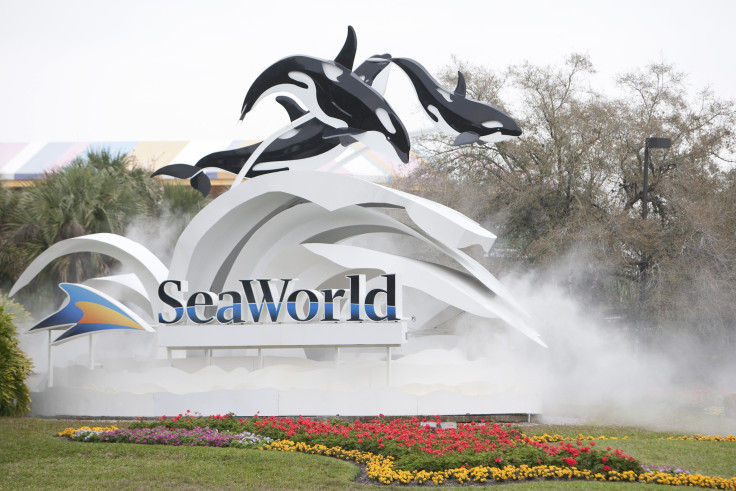Pygmy Whale Dies At SeaWorld After Being Rescued From Beach

SeaWorld San Diego officials confirmed Thursday that a pygmy sperm whale under the company's veterinarian care died, according to NBC-affiliated station KNSD. The female calf, which was only a couple months old, died Wednesday.
The pygmy sperm whale was discovered in July by bystanders at La Jolla Shores in San Diego. Passersby recorded video of the beached whale, but they also alerted lifeguards and local animal rescue organizations of the incident. Bystanders waited with the calf until animal care specialists from SeaWorld San Diego arrived at the scene. The death was reportedly sudden because the animal began to show signs of improvement.
Jody Westberg, head of the SeaWorld's animal rescue program, issued a statement about her team's thoughts on the whale's death.
"We're just heartbroken about the loss of this little calf," Westberg said, according to the Times of San Diego.
"Her passing was very emotional for all of us," Westberg added. "We gave her everything we had and truly hoped she would have survived. Our rescue team poured their hearts into trying to give her a second chance at life."
David Koontz, the park's communications director, issued a statement to International Business Times Thursday about the whale's death.
"It saddens me to report that the stranded pygmy sperm whale calf rescued by SeaWorld San Diego on La Jolla Shores Beach on July 28 passed away suddenly last night at approximately 11 p.m.," Koontz told IBT. "The calf had remained in critical and guarded condition since her rescue, but had been showing steady signs of improvement, even gaining 8 pounds, over the last 27 days."
Koontz added, "While SeaWorld’s rescue team and veterinarians understood that the odds of the calf’s long-term survival were not favorable, they did everything they could for her including providing around-the-clock care over the past month."
The female calf beached itself July 28 when it was only three weeks old. SeaWorld San Diego's veterinarians and animal care specialists reportedly provided rehabilitative services to care for the pygmy sperm whale. However, the park's staff weren't certain if the whale would survive.
"This is an extremely critical period for the calf and it is too early to determine her long-term prognosis," Koontz said in July, according to SD News. "In consultation with National Marine Fisheries Service, SeaWorld’s animal care staff continues to evaluate the young whale’s overall health. "The calf is also being fed a cetacean baby milk formula every three to four hours."
Jim Milburry, a public relations officer for National Oceanic and Atmospheric Administration (NOAA) Fisheries, issued a statement to IBT Thursday about the likelihood of the whale's survival.
"While uncommon off the West Coast, strandings of this species, and the closely related dwarf sperm whale, frequently occur in the Southeastern United States," the NOAA told IBT. "Historic attempts to rehabilitate these species have had little success, with only a single animal ever having been successfully released. As a young calf, this animal had many challenges to overcome, and ultimately succumbed despite the best efforts by SeaWorld."
SeaWorld's Animal Rescue program has helped to save the lives of more than 30,000 animals. The company's rescue program has spanned 50 years, which includes rescue services available 24 hours daily.
"The SeaWorld Rescue Team is on call 24/7/365 to care for ill, injured and orphaned animals, often in need of lifesaving care," SeaWorld San Diego's website reads. "For more than five decades, this dedicated team has provided a second chance at life to more than 30,000 animals, always with the goal of rehabilitating them and returning them to the wild."
SeaWorld's Rescue Team has gone to great lengths to rescue animals in the past because the company recognizes that "no two cases are ever the same," according to its website. Care experts have created nutritional formulas to hand-feed animals and fixed turtles' cracked shells with everyday items, among other specialized services.
Not all care efforts at SeaWorld are successful. A killer whale at the San Diego park reportedly died August 15 from either a respiratory bacterial infection or lung disease, according to a statement from SeaWorld. Veterinarians were forced to euthanize the whale, Kasatka, after suffering for several years. Kasatka was diagnosed with a lung condition in 2008.
Follow me on Twitter @dory_jackson
© Copyright IBTimes 2024. All rights reserved.












